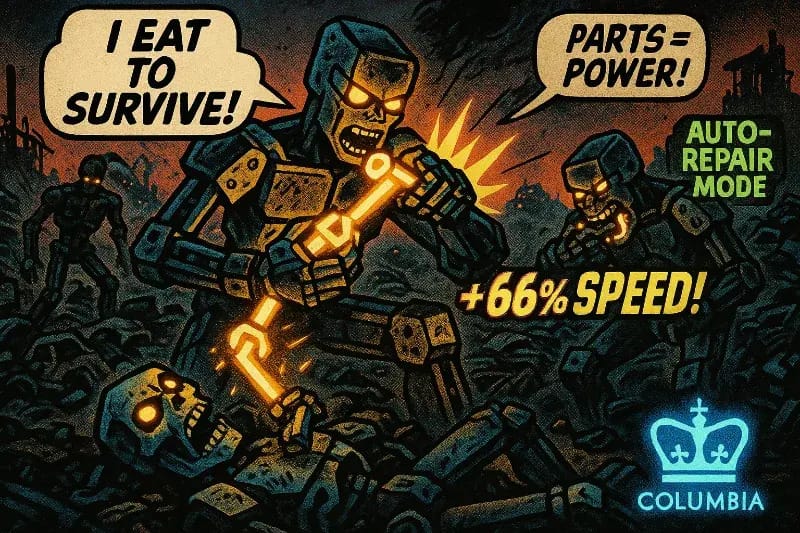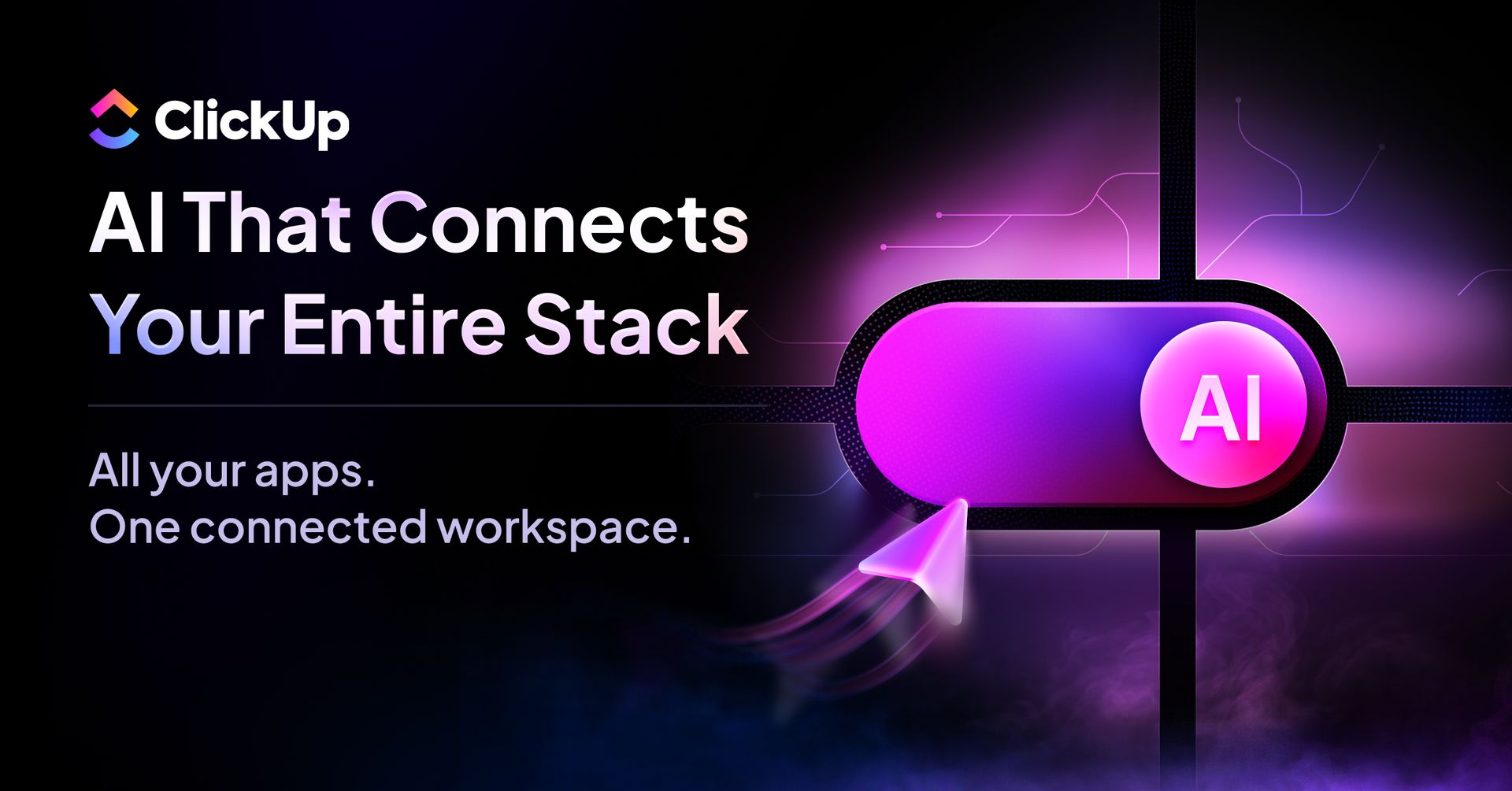- Tech Momentum
- Posts
- Robots Are Eating Robots & Googles Web Guide
Robots Are Eating Robots & Googles Web Guide
Google revamps search with Web Guide, robots now self-heal, GPT‐5 launches soon —discover this week’s most powerful tech breakthroughs.

Welcome to Tech Momentum!
Google’s Web Guide is rethinking how we search. Robots are now self-healing. And OpenAI’s GPT‑5 is almost here. This week’s stories are not just updates—they're reboots of reality.
Let’s break it all down!
Updates and Insights for Today
Google’s Web Guide: AI Clusters the Web—Goodbye Wall of Blue Links!
Robot Cannibals: Machines That ‘Eat’ Each Other to Grow and Heal!
OpenAI’s GPT‑5 Drop: AI’s New Mastermind Arrives Early August!
The latest in AI tech
AI Tutorials: Forget ChatGPT! This AI Built My Full App in 48 hours!
AI tools to checkout
AI News
Google’s Web Guide: AI Clusters the Web—Goodbye Wall of Blue Links!

Quick Summary
Google just launched Web Guide, a Search Labs experiment powered by its Gemini AI. It groups search results by topic instead of listing links in a flat order. Early users can opt‑in via the "Web" tab and test it now.
Key Insights
Web Guide uses Gemini and a "query fan‑out" method to break down complex queries into subthemes, then organizes links into topic clusters.
Ideal for open‑ended searches like “how to solo travel in Japan,” showing sections such as safety tips, guides, personal experiences.
Users can toggle between classic search and Web Guide within the Web tab; future expansion planned to the “All” tab.
Critics say it may disrupt publishers: Cloudflare’s CEO warned that Web Guide could further harm publisher business models.
Why It’s Relevant
Web Guide marks a milestone in search evolution. It blends AI reasoning with link-first UX—hybridizing traditional results with smarter navigation. It has the potential to reshape how content creators attract traffic and challenge existing publisher models. And Google invites feedback to refine it.
📌 Read More: Google Blog
Our Partner Today
Learn from this investor’s $100m mistake
In 2010, a Grammy-winning artist passed on investing $200K in an emerging real estate disruptor. That stake could be worth $100+ million today.
One year later, another real estate disruptor, Zillow, went public. This time, everyday investors had regrets, missing pre-IPO gains.
Now, a new real estate innovator, Pacaso – founded by a former Zillow exec – is disrupting a $1.3T market. And unlike the others, you can invest in Pacaso as a private company.
Pacaso’s co-ownership model has generated $1B+ in luxury home sales and service fees, earned $110M+ in gross profits to date, and received backing from the same VCs behind Uber, Venmo, and eBay. They even reserved the Nasdaq ticker PCSO.
Paid advertisement for Pacaso’s Regulation A offering. Read the offering circular at invest.pacaso.com. Reserving a ticker symbol is not a guarantee that the company will go public. Listing on the NASDAQ is subject to approvals.
Robot Cannibals: Machines That ‘Eat’ Each Other to Grow and Heal!
Quick Summary
Columbia University scientists have demonstrated robots that physically grow, heal, and self-optimize by consuming parts from other robots or their environment—a system dubbed Robot Metabolism.
Key Insights
Researchers used modular Truss Links, magnetically connecting bars that can expand, contract, and self-assemble into increasingly complex structures, from triangles to tetrahedrons.
Robots absorb spare modules—even from damaged peers—to repair or upgrade themselves, boosting performance (e.g. adding a link increased downhill speed by over 66 %).
The growth stages mirror biological development: single links → 2D shapes → 3D robots → self-enhancing configurations.
Scientists envision applications in autonomous machine ecologies, space exploration, disaster recovery—where self-sustaining adaptability is critical.
Why It’s Relevant
Robot Metabolism signals a shift in robotics: machines that physically evolve, mirroring life’s adaptive traits. It reduces dependency on human maintenance, enabling resilient robotic systems for hazardous or remote environments. And it raises deep questions about control, regulation, and the future of self-replicating technology.
📌 Read More: Scienceblog
OpenAI’s GPT‑5 Drop: AI’s New Mastermind Arrives Early August!
Quick Summary
OpenAI’s groundbreaking GPT‑5, including mini and nano variants, is expected to launch in early August 2025 via API access, featuring enhanced o3‑inference capabilities and unprecedented rapid comprehension—even for the CEO’s toughest questions.
Key Insights
Sam Altman announced on X that GPT‑5 is coming very soon, demonstrating its ability to handle queries he personally found challenging.
Versions include mini and nano, aimed at broadening accessibility across use cases.
The model will be available to external developers via API, integrating o3 inference tech for superior reasoning speed.
Launch likely scheduled for early August 2025—developer access rollout to follow shortly.
Why It’s Relevant
This marks a leap in AI progress—GPT‑5 could fundamentally reshape developer tools, AI products, and user experiences. Mini and nano variants open the door for lighter on‑device or embedded AI uses. Its fast inference speeds may challenge competitors and accelerate AI adoption across industries.
📌 Read More: Bitget
AI Tutorials
The latest in AI tech

🧠 Anthropic’s Claude Code in Action
Anthropic teams employ Claude Code across roles: from automating data engineering and debugging Kubernetes via dashboards, to generating workflows from plain text and onboarding new hires by interpreting Claude.md. It speeds codebase navigation and session documentation updates. Across domains—data science, finance, product design—it transforms complex tasks into streamlined, agentic workflows.
📌 Read More: Anthropic
📰 AI Summaries Slashing News Traffic
A Guardian-backed study finds Google’s AI-generated overviews cut online news click-through by up to 79 %. Sites that once ranked first now see dramatic drops. Users rarely click links after reading summaries, ending sessions earlier. UK publishers voice alarm, pushing regulatory scrutiny. Google claims flaws in the study’s methods but pressure mounts on AI’s impact on journalism.
📌 Read More: The Guardian
🤖 MIT’s Robots Learn Their Bodies via Vision
MIT CSAIL introduced Neural Jacobian Fields—a vision-based system enabling robots to gain self-awareness using just a camera. Robots learn body control without sensors or pre-coded models. Movement observed through vision helps them understand their physical form, enabling fluent interaction with the world. This enhances autonomy while lowering hardware complexity.
📌 Read More: MIT
🚀 OpenAI DevDay 2025 Announced
OpenAI confirmed DevDay 2025 for October 6 at Fort Mason, San Francisco. It promises the largest event yet: over 1,500 developers, livestreamed keynotes from Sam Altman and Greg Brockman, and deep dives into new models and tools. DevDay aims to spotlight the latest innovations and build community momentum.
📌 Read More: OpenAI
🇺🇸 Trump’s AI Policy: Regulation Meets Deregulation
President Trump signed three executive orders targeting “woke” bias in federal AI systems, easing tech exports, and expanding data infrastructure. The orders restrict AI models that promote DEI themes, demand neutrality, and promote U.S. AI leadership. Critics warn of ideological censorship and undermined fairness, while proponents tout accelerated innovation and global competitiveness.
📌 Read More: PBS
Our Second Partner Today
The Only AI That Knows All Your Work
Most AI tools start from scratch every time. ClickUp Brain already knows the answers.
It has full context of all your work—docs, tasks, chats, files, and more. No uploading. No explaining. No repetitive prompting.
It's not just another AI tool. It's the first AI that actually understands your workflow because it lives where your work happens.
Join 150,000+ teams and save 1 day per week.
AI Tools to check out
Thanks for sticking with us to the end!
We'd love to hear your thoughts on today's email!
Your feedback helps us improve our content
⭐⭐⭐Superb
⭐⭐Not bad
⭐ Could've been better
Not subscribed yet? Sign up here and send it to a colleague or friend!
See you in our next edition!
Tom






